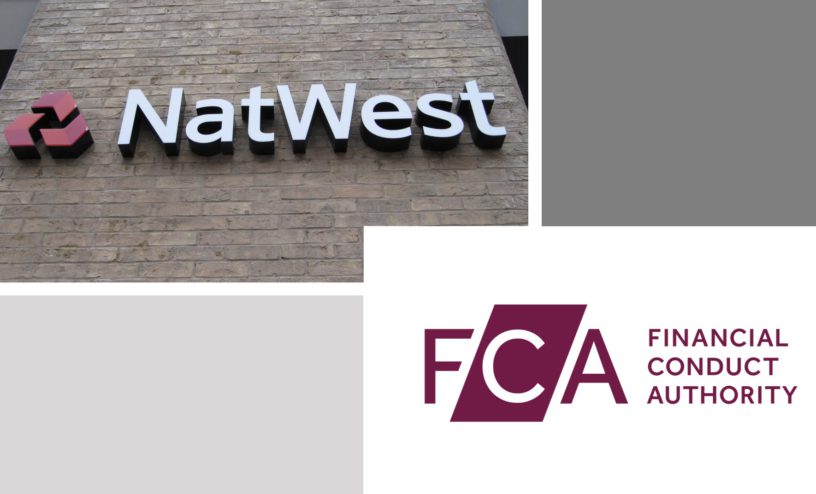By AMLi Correspondents
British lender NatWest was today ordered to pay £265M in fines for some of the most flagrant breaches of AML protocols ever heard in a courtroom. Prosecutors described criminals openly walking into up 50 of the lender’s branches with bin bags stuffed full of cash.
In one case the bin bags containing £700,000 cash split open and had to be placed in hession bags – and then the money would not fit in the outlet’s ceiling high vaults.
Britain’s biggest bank admitted at Southwark Crown Court today to failing to prevent laundering of nearly £400M – almost two thirds of it in cash.
Questions were today being asked however why no individuals faced charges over the money laundering which was mammoth, and many would argue openly identifiable, in its scale because of the quantities of cash presented.
The court was told that the UK’s National Crime Agency (NCA) had requested information on the customer – a jewellery shop – due to fears that funds could be linked to illegal drugs. Astonishingly the bank declined and did not warrant the filing of a suspicious activity (SARs) report.
‘An outgoing manager said the activity was “the most suspicious money laundering” he had ever seen but the financial crime manager took the view there were “macroeconomic reasons” for the spike in cash deposits’
At least one branch received more than £40m in cash lodgments, prosecutors for the Financial Conduct Authority (FCA) told the judge.
The court heard that one gang member in Walsall had arrived at a branch with £700,000 in cash in bin bags – so much that they split open and the money had to be repacked in hessian bags.
Then the cash could not even fit in the branch’s floor-to-ceiling safes.
Another branch, in Southall, alone took in £42m between January 2015 to March 2016 – but no report was made that it was suspicious.
The front was laundering the money was customer Fowler Oldfield, a Bradford-based gold dealer and jeweller liquidated after a police raid in 2016.
Prosecutor Clare Montgomery revealed that NatWest decided to deactivate a suspicious activity flagging system which queried ‘suspicious activity’ because it created too many alerts.
The bank’s chief executive Alison Rose said in October that the bank “deeply regret” it had “failed to adequately monitor and therefore prevent money laundering by one of our customers between 2012 and 2016”.
NatWest admitted in October to three charges linked to failing to prevent the laundering of £365M – including £264M cash.
‘One person in Walsall arrived at a branch with so much cash in bin bags that they split open and the money had to be repacked’
The court heard how couriers walked through the streets of British towns such as Walsall carrying bags of cash they then deposited at the bank’s branches before the scheme was uncovered by police.
NatWest is Britain’s biggest business bank and is still majority taxpayer-owned after a more than £45 billion state bailout during the financial crisis.
When Fowler Oldfield was taken on as a client, it’s predicted annual turnover was in the region of £15 Million. However, this turnover increased 25-fold, with £365 Million deposited by the company over five years, which included £264 Million in cash.
Prosecutor Clare Montgomery described how Fowler Oldfield was the “single-most lucrative” client in the Bradford region and told the court there was a “rapid escalation” in the cash amounts being deposited from November 2013, with up to £1.8 Million deposited a day.
The bank’s Halifax branch received £750,000 in three days, while the bank’s Piccadilly and New Bond Street received “several millions” in deposits.
An outgoing manager of another cash centre said the activity was “the most suspicious money laundering” he had ever seen but the financial crime manager took the view there were “macroeconomic reasons” for the spike in cash deposits.
Ms Montgomery said one rule designed to flag suspicious activity was disabled by NatWest because it created too many alerts “so the bank decided it should be deactivated”.
It is the first time a financial institution has faced criminal prosecution by the Financial Conduct Authority (FCA) under anti-money laundering laws in the UK.
Defence lawyer John Kelsey-Fry expressed “deep regret” on behalf of the bank’s board.
NatWest is part of what was the RBS group, now re-named NatWest, which remains 55% owned by the state following its taxpayer bailout during the financial crisis.
The group’s chief executive Alison Rose said: “NatWest takes its responsibility to prevent and detect financial crime extremely seriously.
“We will continue to invest significant resources in the ongoing fight against financial crime.”








